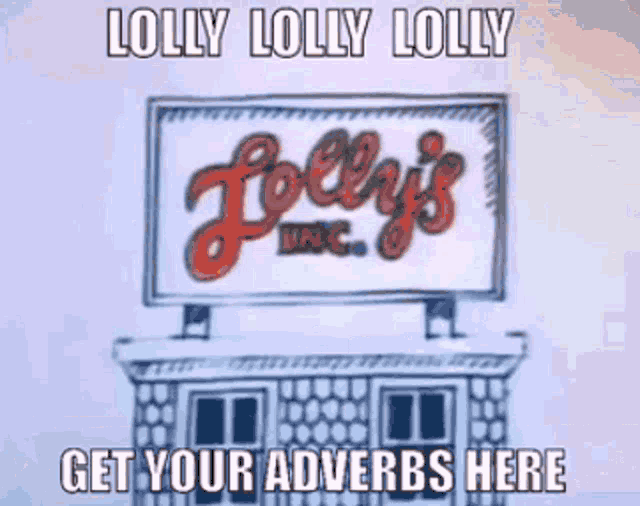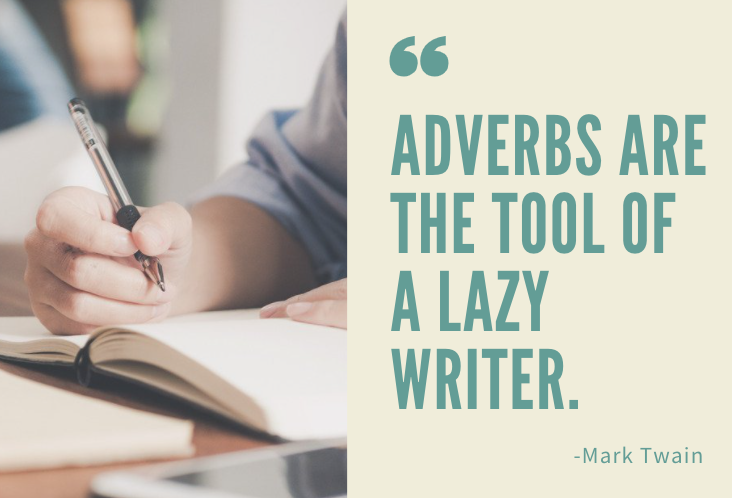We all remember the School House Rock short, “Lolly, Lolly, Lolly, get your adverbs here.” It’s a tune that is hard to get out of your head (you’re welcome). But when it comes to professional writing, you need to aggressively restrain.

If you recall your English classes, the adverb modifies just about everything – verbs, other adverbs, adjectives, phrases and clauses. In fact, they can modify an entire sentence. But, as Mark Twain said, “Adverbs are the tool of a lazy writer.”
Why? Because when you use adverbs, it becomes a crutch. You are telling instead of showing, and your writing becomes weak and redundant. Granted, adverbs have their place and value in the writing world, but consider Stephen King’s position:
“I believe the road to hell is paved with adverbs, and I will shout it from the rooftops. To put it another way, they’re like dandelions. If you have one in your lawn, it looks pretty and unique. If you fail to root it out, however, you find five the next day … fifty the day after that … and then, my brothers and sisters, your lawn is totally, completely, and profligately covered with dandelions. By then you see them for the weeds they really are but by then it’s – GASP!! – too late.”
So, let’s do some weeding. Go through your writing. The most common adverbs end in -ly. See how many you have in your document. Try tightening your writing and remember the phrase “show, don’t tell.” Here are some examples to get you started:
1. “Our newest equipment is really efficient.”
Our newest equipment has this, that and whatever great perk will make the client’s life better. Show how the equipment is efficient.
2. “For a truly great partnership …”
This is a major pet peeve of mine. First, the word “great” gets the point across fine, so “truly” implies that, if it weren’t there, you were lying about how great the partnership is. Secondly, assuming you added the adverb to pump up the statement, try instead choosing a stronger adjective (or verb, in those instances) – exceptional, stellar, incomparable.
3. “We will resolve any issues quickly.”
Again, this creates mistrust with your reader because it is vague. Being as specific as possible is almost always the best policy in writing, so the easy fix here is to be exact: We will resolve any issues within 24 hours.

The difference between Henry’s adverb usage per the picture above and the examples we provided is how they were used. Thoreau was careful in his word choice, purposeful. That is not the case with the examples we provided, so take those adverbs back to Lolly’s and exchange them for something more useful – perhaps a good cup of coffee!
Don’t be sad. We’ll be back on the first Monday next month with a new blog post. If you can’t wait that long – whether because you have a topic you’d love us to cover, a question or you simply want to throw your two cents into the pot – we love talkin’ shop, so drop us a line.






